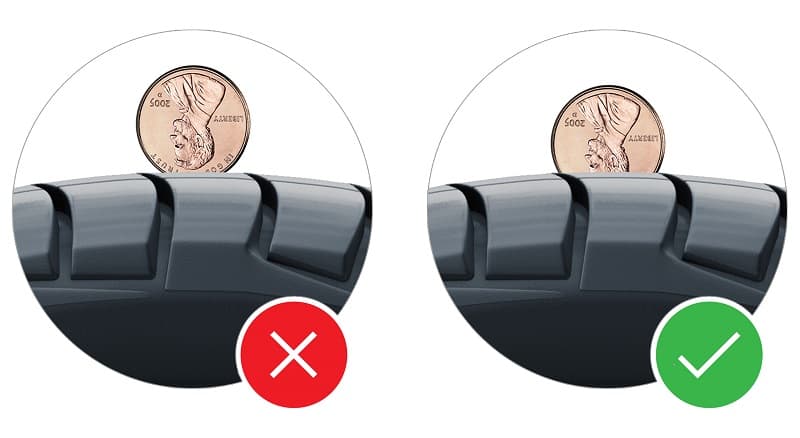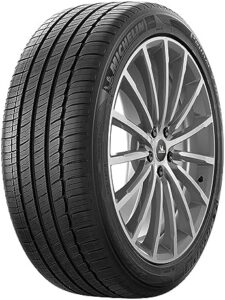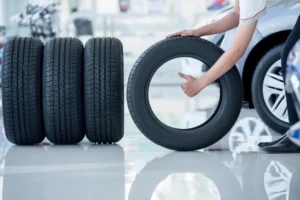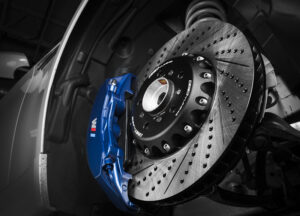
As a car owner, it's important to have a good understanding of the various components that make up your vehicle. One of the most crucial of these components is the tire. Tires are responsible for ensuring a smooth and safe ride by providing traction and grip on the road. One important aspect of tire maintenance is to regularly check the tread depth of your tires. Tire tread depth refers to the height of the raised portion of the tire that comes into contact with the road. It is an indicator of how much tread is left on the tire and is usually measured in millimeters. The tread depth of a new tire is usually around 8-10 millimeters, but over time, this depth decreases as the tire wears down.
The importance of tire tread depth lies in its role in ensuring road safety. As the tread depth decreases, the tire’s ability to provide traction and grip on the road is also reduced. This can result in reduced handling performance, increased stopping distance, and a higher risk of hydroplaning on wet roads. In severe cases, driving on tires with low tread depth can be dangerous and result in accidents.
It’s recommended to check the tread depth of your tires regularly, at least once a month. You can easily do this by using a tire tread depth gauge or by performing the “penny test.” The penny test involves placing a penny head first into the tread groove. If you can see the top of Abraham Lincoln’s head, it’s time to replace your tires as the tread depth has reached 2/32 of an inch, or 1.6 millimeters, which is the minimum safe tread depth recommended by most tire manufacturers.
It’s also important to remember that tire tread depth can vary across the tire, with the center tread wearing faster than the shoulders. To ensure even wear and a longer lifespan, it’s recommended to have your tires rotated every 6,000 to 8,000 miles. This helps to distribute the wear evenly across the tire and prolong its lifespan.
In conclusion, tire tread depth is an important factor in ensuring road safety and performance. Regularly checking your tire tread depth and rotating your tires can help to prolong their lifespan and keep you safe on the road. By staying on top of your tire maintenance, you can avoid the risks associated with driving on worn-out tires and enjoy a smooth and safe ride.
In addition to checking your tire tread depth, it’s also important to check the overall condition of your tires. This includes checking for any visible signs of damage, such as cuts, cracks, or punctures, as well as signs of uneven wear, such as cupping or scalloping. If you notice any issues, it’s important to have your tires inspected by a professional as soon as possible.
Another factor that can affect tire tread depth is tire inflation. Maintaining the correct tire pressure is important for both safety and performance. Underinflated tires can cause increased wear on the outer edges, reducing the tread depth and making the tire more prone to damage. Overinflated tires, on the other hand, can cause increased wear in the center, reducing the tire’s ability to grip the road.
It’s also worth considering the type of tires you have, as different types of tires have different tread patterns and depths. For example, all-season tires typically have a deeper tread depth than summer tires, which are designed for maximum performance in warm weather. If you live in an area with harsh winters, you may want to consider investing in winter tires, which have a deeper tread depth and a special tread pattern designed to provide improved traction in snow and ice.
Finally, it’s worth noting that tire tread depth can be affected by other factors, such as driving habits, vehicle weight, and road conditions. If you frequently drive on rough roads or carry heavy loads, you may find that your tire tread wears down more quickly. To minimize the impact of these factors, it’s important to regularly check your tire tread depth and have your tires inspected by a professional if you notice any issues.
In conclusion, tire tread depth is an important factor in ensuring road safety and performance, and it’s important to regularly check your tire tread depth and overall tire condition to ensure that your tires are in good condition. By taking these steps, you can prolong the lifespan of your tires and keep yourself and your passengers safe on the road.
Tread Depth Gauge
Enter your tire's tread depth (in millimeters):






